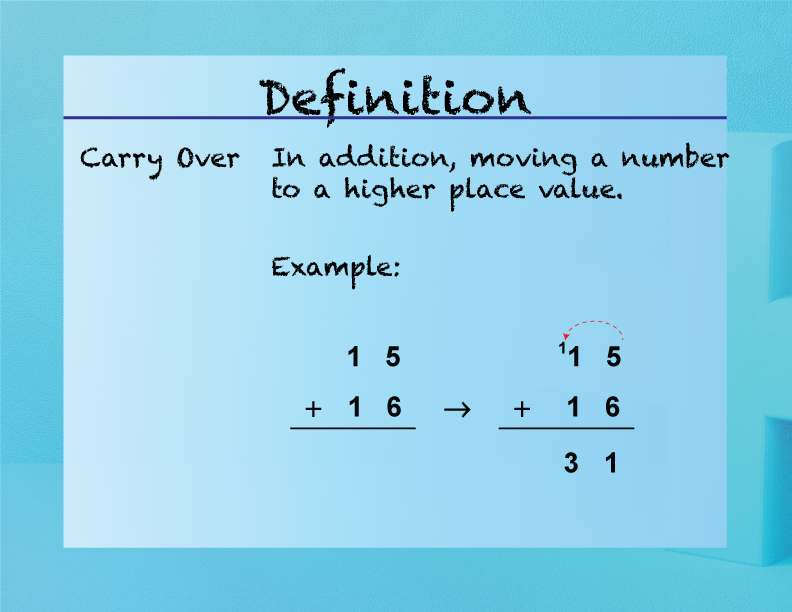
Display Title
Elementary Math Definitions--Addition Subtraction Concepts--Carry Over
Display Title
Carry Over

Topic
Addition and Subtraction
Definition
Carry over is a technique used in addition when the sum of digits in a column exceeds 9, requiring the extra value to be carried to the next column.
Description
Carry over, also known as regrouping, is a technique used in addition when the sum of digits in a column exceeds 9. For example, in the addition problem
27 + 58
the sum of the digits in the ones column is 15. The 5 is written in the ones column, and the 1 is carried over to the tens column, resulting in
2 + 5 + 1 = 8
in the tens column, making the final sum 85.
This technique is essential for performing accurate addition and is a foundational skill in arithmetic. Understanding carry over helps students solve more complex addition problems and prepares them for advanced mathematical concepts such as multiplication and algebra.
In real-world applications, carry over is used in various scenarios, such as calculating total costs, determining total quantities, and more. For example, if you have 27 apples and buy 58 more, carry over helps you determine that you have 85 apples in total.
Teacher's Script: "Let's learn about carry over in addition. Sometimes, when we add numbers, the total in one column is more than 9. We need to carry the extra value to the next column. Let's practice carry over with some examples."
For a complete collection of terms related to Addition and Subtraction click on this link: Addition and Subtraction Collection
| Common Core Standards | CCSS.MATH.CONTENT.1.OA.B.3, CCSS.MATH.CONTENT.2.NBT.B.9 |
|---|---|
| Grade Range | 1 - 3 |
| Curriculum Nodes |
Arithmetic • Addition • Addition Expressions and Equations |
| Copyright Year | 2021 |
| Keywords | addition, subtraction, equation, place value |